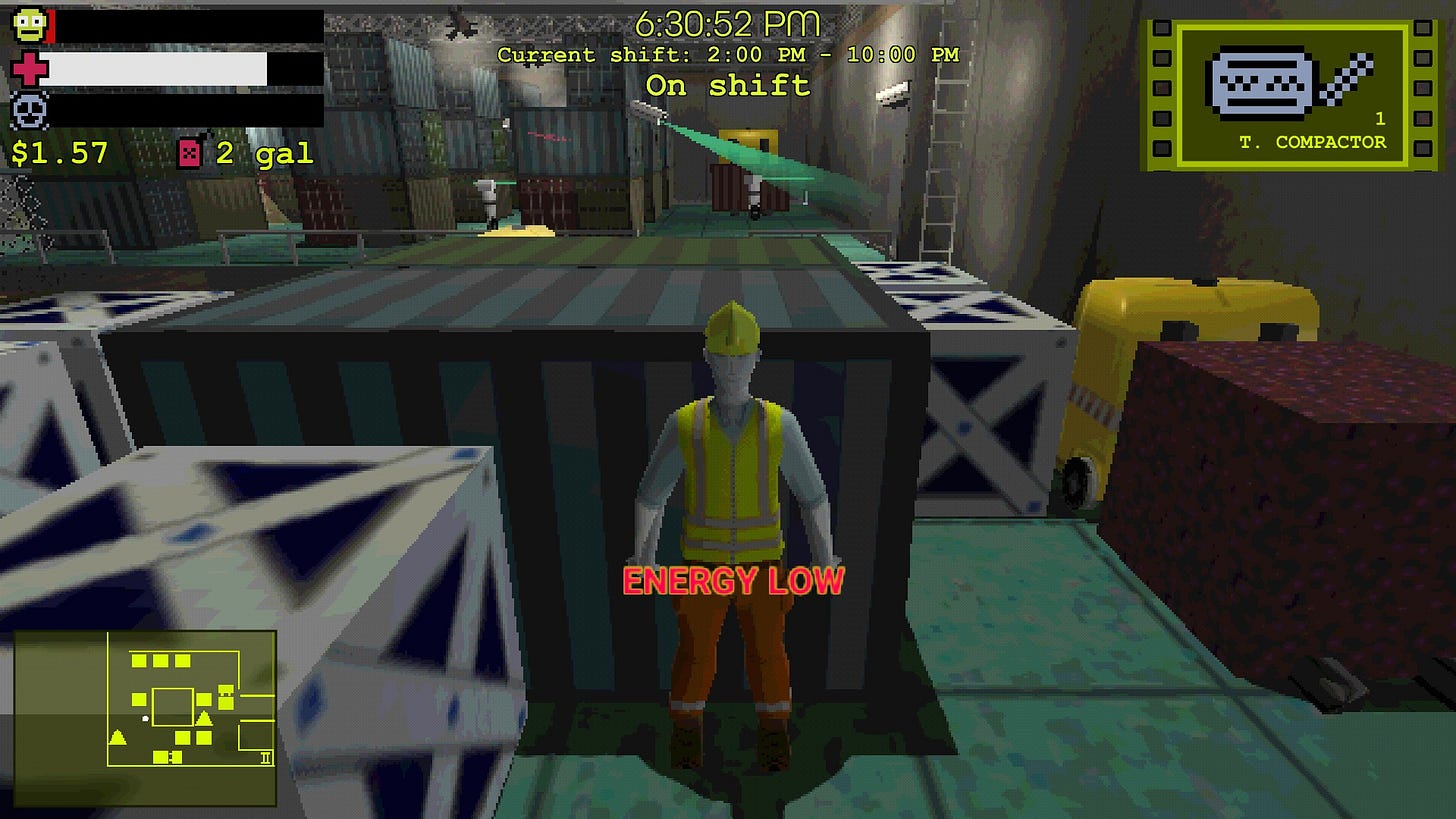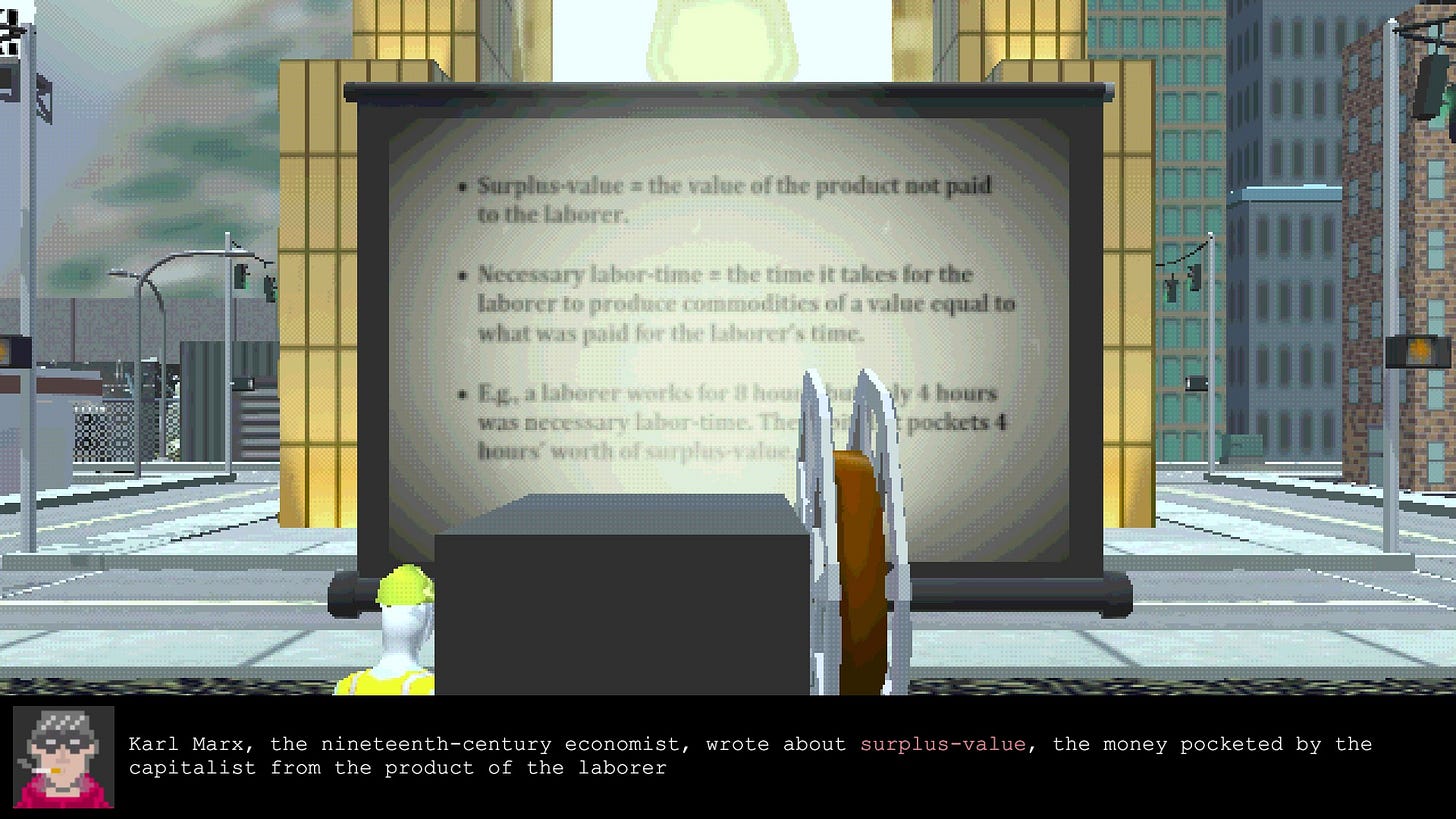"How do you design a game that explores the future?" In the context of videogames, few questions are as banal as this. It's one, however, to which indie curio Time Bandit – Part 1: Appendages of the Machine provides an interesting response.
The basics. You work a shitty job for a shitty boss, pushing blocks to complete boring Sokoban-like puzzles. The setting: a dystopian vision of "the future" as a rampant neoliberal hellscape — to a large degree, of course, also our present.
So far, so familiar.
The catch is that every move the player makes takes ages — half an hour to push a single block — with the computer's internal clock and calendar used to simulate the real passage of time a la Animal Crossing. In the game's most exciting moment, a cigarette-smoking, Marxplaining scuba diver named Longtail Duck turns up and asks you to meet him tomorrow in the city square — literally meaning that you have to schedule a time IRL the next day and commit to what you promise. Stressful!
A key thing that makes Time Bandit stand out from the pack of capitalism games is its unusually bookish engagement with the topic. Its developer, Joel Jordan, is a library-card-carrying Marxist, and has the uncommon distinction (at least outside of interactive fiction and visual novels) of having made a videogame whose primary influence can really be said to have been a book, rather than another game. The book in question is Alex Williams and Nick Srnicek's manifesto Inventing the Future: Postcapitalism and a Work Without Work — which, even more unusually, is a work of political nonfiction.
Williams and Srnicek's critique is an imaginative 'science fiction' of sorts, calling for an ambitious, broad-base reclaiming of modernity by the left. This basic shape, along with ideas from Marx's Das Kapital, informs Jordan's design from the ground up. The player is recruited into a project much like the one Williams and Srnicek put forward: the unleashing of the productive forces of new automation technologies, with an aim to "steal" back time for workers, advancing an emancipatory tomorrow. The game's tutorial, taking place on an office computer in a high-rise, makes clear that we are reflecting not just on work, but ourselves as gamers too. Its ludic tensions present a fork to the player, asking them if they want to take a sweaty, grindy route, or take it easier.
There is an elephant in the room reading Inventing the Future a decade on: its Silicon-Valley-friendly assumption about the labor-saving powers of these automation technologies — particularly sensitive in our current, anxious present — which, viewed through the lens of economics, now appears false; through the lens of ideology, detrimental. The problem is of a kind unique to a nonfiction adaptation. “What happens when the source’s arguments start to feel shaky?”
How far Jordan takes on this assumption is unclear. At the end of Part 1 — the first of four planned installments — it is yet to be seen whether Longtail's singularity-like revolutionary vision will come to pass. As Williams and Srnicek note, fixed paths and destinations have often been a sticking point for modernist visions — and I'd suggest that this is also true of videogame narratives. Can Jordan overcome the challenge?
For now, we futurists have a fascinating whatsit to study and enjoy. Politics has no script, and neither does game-making; the problems Time Bandits sets are its own, and this is a commendation in itself. At times, it feels like what the best experimental games feel like: science fiction of game design.
Originally published on Issue 81 of Unwinnable Expoits.





